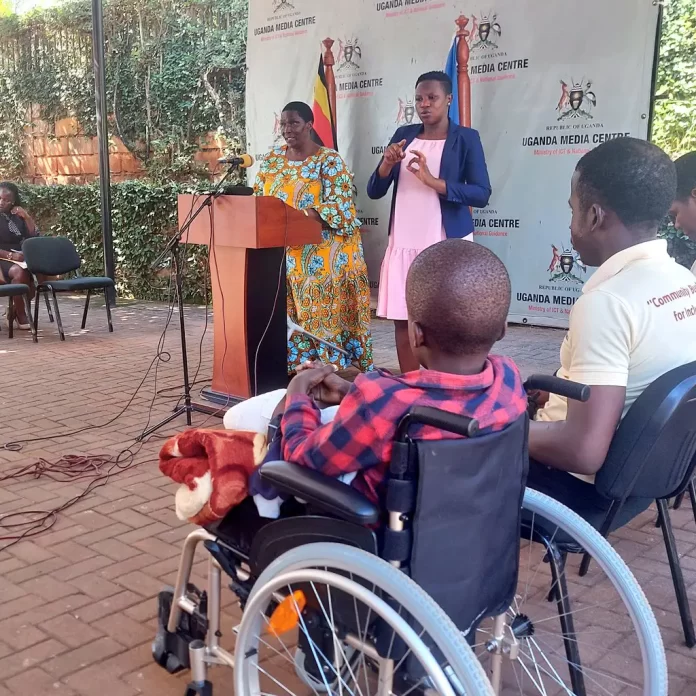
Hellen Grace Asamo, the Minister of State for Disability Affairs has said that, raising awareness and promoting accessibility of services and information will empower individuals affected by Spina bifida and hydrocephalus in Uganda.
She made the remarks during a press conference at Uganda Media Centre, Kampala on Tuesday, October 24, 2023.
According to Asamo, this year’s theme is Accessibility for All, Empowering Lives, Embracing Differences which aligns strongly with the Sustainable Development Goals (SDGs) set by the United Nations, particularly SDG 4, SDG 3, and SDG10.
Asamo explained that, Spina bifida often leads to lifelong physical and cognitive disabilities, including the co-occurring condition known as hydrocephalus, which affects the accumulation and circulation of cerebrospinal fluid in the brain.
She said that, 11.7% of Uganda’s 10,000 live births are thought to be impacted by Spina bifida, making it a serious public health concern.
“Spina bifida is a significant public health concern in Uganda. It is estimated that 11.7% in 10,000 live births in the country are affected by this condition,” Asamo said.
“Hydrocephalus affects over 8,000 persons per year and 40% of the cases have post-infectious hydrocephalus, 30% due to spina bifida and 30% is congenital hydrocephalus,” she added.
However, Asamo said that, Spina bifida and hydrocephalus are very common in Uganda, but the general public does not know much about them. As a result, affected people face prejudice and social stigma in addition to having limited access to resources and information.
She said that, Uganda will commemorate the World Day for Spina Bifida and Hydrocephalus on Wednesday October 26, 2023.
According to World Health Organization (WHO), about 80 to 90% of children with Spina bifida develop hydrocephalus. Hydrocephalus is a condition in which excess cerebrospinal fluid (CSF) builds up within the ventricles (fluid-containing cavities) of the brain and may increase pressure within the head.














